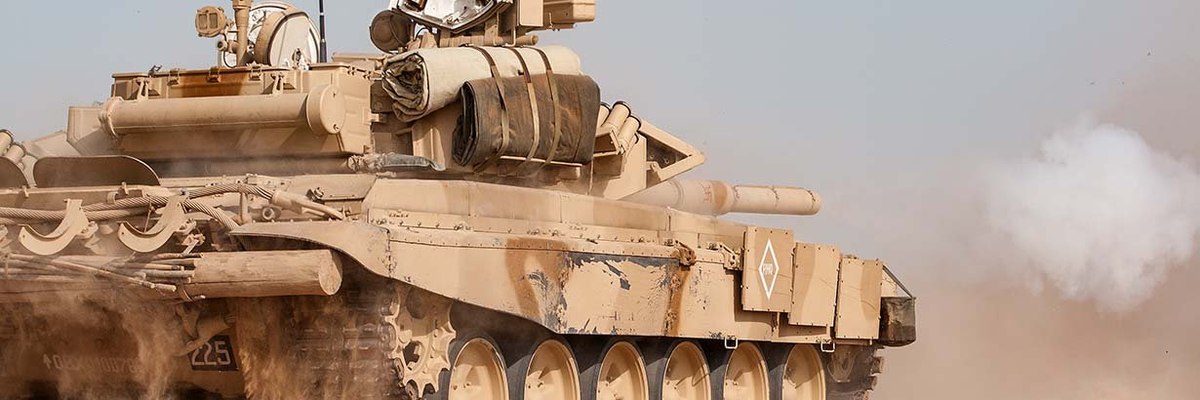The third part of the YouGov Study of War analyses British attitudes towards Britain’s nuclear weapons and in which circumstances they should be used. We also take a wider look at the opinions Britons have about nuclear weapons – how they impact the security of the world, what is the likelihood of them being used and whether they should be gotten rid of.
It should be noted for posterity that the study was conducted from 14-18 April 2022, during the Russian invasion of Ukraine.
Britain and nuclear weapons
A third (35%) of Britons say they have considered what to do in case of a nuclear attack, while 56% say they have not.
Men (40%) and Britons above the age of 40 (37-38%) are more likely than women (30%) and the under-40s (31-32%) to say they’ve thought about what to do in this scenario.
A third of Britons (34%) say they feel safer because the UK has nuclear weapons, while one in five (18%) say this makes them feel less safe. For a further third (33%), the UK possessing nuclear weapons makes them feel neither safer nor less safe.
Men (42%) are more likely than women (27%) to report that UK nuclear weapons make them feel safer, as are people over 40 (35-41%) compared to the under-40s (27%).
Over half of Conservative voters (55%) state the UK possessing nuclear weapons makes them feel safer, which is significantly higher than the number of Labour supporters (22%) who say the same.
Just over half of Britons (54%) would support the UK responding to a nuclear attack by launching its own nuclear weapons, with men (64%) more likely than women (45%) to hold this view.
There is a generational split: around three in ten Britons (28-29%) under the age of 40 would not support the UK responding to a nuclear attack by launching its own nuclear weapons, while this applies to 14-18% of those 40 and older.
Three-quarters (75%) of Conservative voters would support using nuclear weapons in a counter-attack, compared to 41% of Labour voters. Labour voters are three times more likely than their Conservative counterparts to oppose Britain using nuclear weapons in response to being attacked with nuclear weapons (31% vs 10%).
Nuclear weapons and the world
Just one in eight Britons (12%) think that nuclear weapons are making the world a safer place, while a majority (62%) think the opposite.
Men (18%) are more likely than women (6%) to say nuclear weapons make the world safer. Older Britons (19% of those aged 60+) and Conservative voters (20%) are more likely than those under 60 (7-11%) and Labour voters (8%) to believe nuclear weapons contribute to a safer world.
Since the outbreak of the war in Ukraine, it has been speculated that a nuclear weapon might be used in the conflict.
When asked about the chances of a nuclear weapon being used in the next five years, four in ten Britons (39%) say this is likely to happen, compared to 38% who think it is unlikely. More women (43%) than men (34%) think nuclear weapons will be used within the next five years
The expectations of a nuclear weapon being used are slightly lower when looked through a 10 year (33%) and a 20-year (35%) timeframe.
Asked about the prospects of a nuclear war, a quarter of Britons think such a conflict is likely in the next five (27%) or ten (26%) years, while three in ten (29%) say it’s likely within the next 20 years.
When it comes to the next five years, nearly half of Britons (49%) think that nuclear war is unlikely. Looking at this five-year timeframe, women (31%) are more likely than men (22%) to think there is a likelihood of nuclear war in the near future.
Britons aged 25 to 39 are most likely to think there will be a nuclear war within the next five years: 33% vs 21% of 16-24-year olds and 25-28% of those older than 40.
The YouGov Study of War finds that 5% of Britons think that it would be acceptable to use a nuclear weapon against another country first, i.e, even without being previously attacked with nuclear weapons, while eight in ten (81%) Britons don’t think using nuclear weapons first is ever acceptable. One in seven (14%) say they don’t know.
Countries abolishing or more nations acquiring nuclear weapons?
Currently, there are nine countries in the world which have been recognised as nuclear powers or have declared or indicated they have nuclear weapons. The YouGov Study of War also asked Britons what should happen to existing nuclear weapons and whether more countries should be allowed to acquire them.
Seven in ten Britons (72%) think that countries with nuclear weapons should get rid of them, although few (10%) think they should do so unilaterally. Six in ten (62%) think this should happen only if all other nations get rid of their nuclear weapons.
One in seven Britons (15%) think countries should keep their nuclear weapons. The highest percentage of those who think that countries should keep their nuclear weapons is among men aged 16-24 (24%).
Among Conservative voters there is significantly stronger support for keeping nuclear weapons (23%) than among Labour voters (11%).
Over the years it has been claimed that countries such as Iran and North Korea are trying to acquire or may have developed nuclear weapons.
Just 5% of Britons think other countries should be allowed to acquire or develop nuclear weapons, while a third (32%) think such weapons should be limited only to those countries that already have them. Just over four in ten Britons (44%) think neither should be allowed, and 19% say they don’t know.






